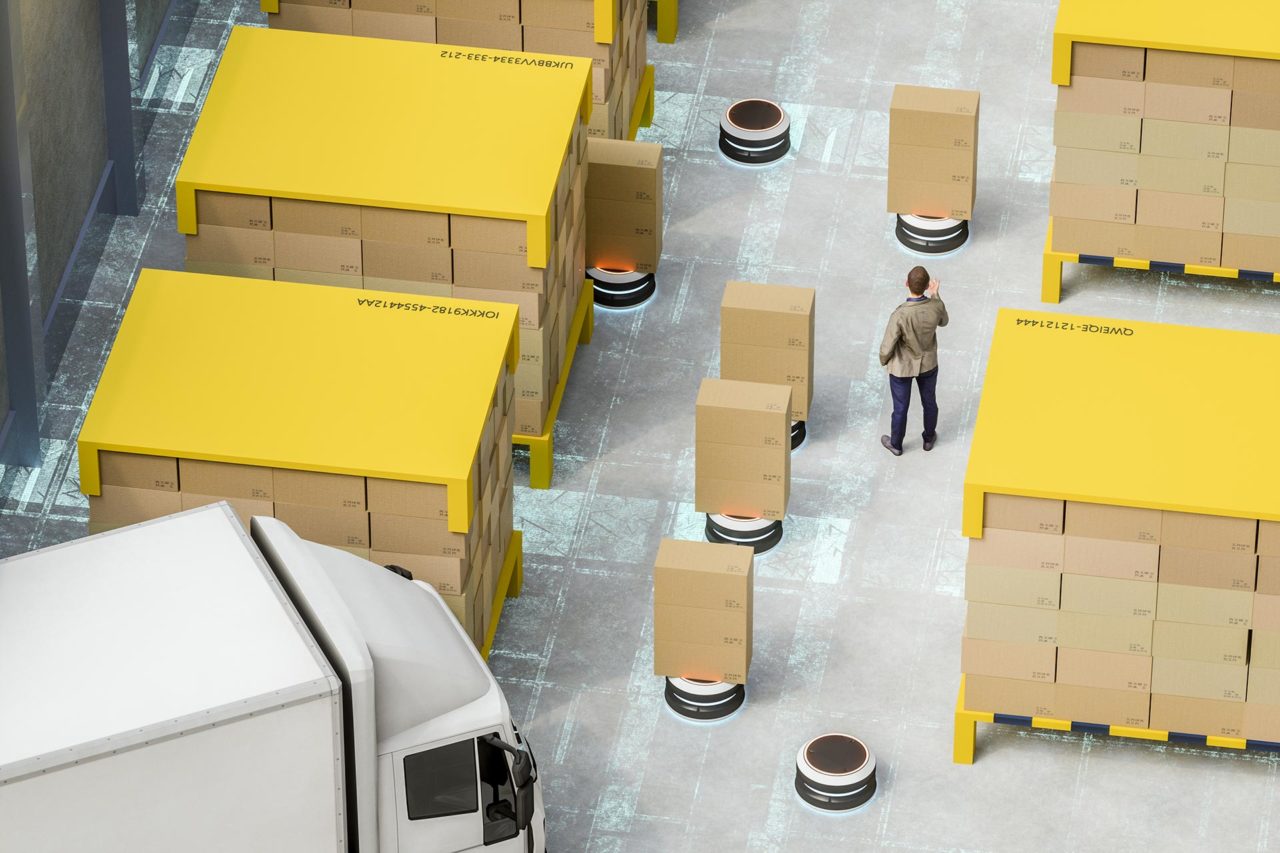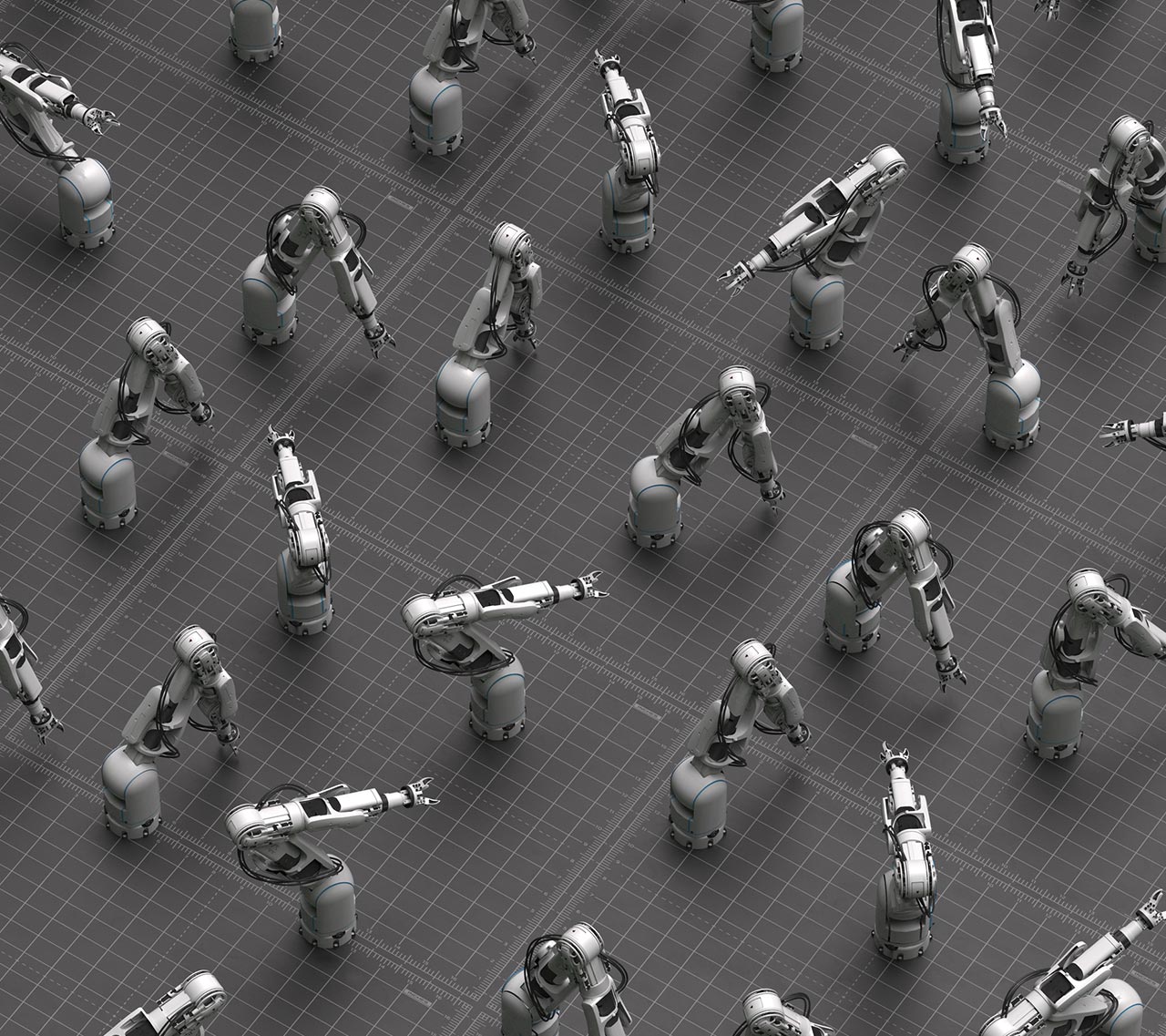Advantages of IoT in the production environment
The Internet of Things lets machines talk
The path from the production of the 20th century to the smart production of the 21st century is via machines that communicate with each other. It is only with the Internet of Things (IoT) that a smart factory has become possible. Intelligently networked machines, which exchange information on status, filling levels or maintenance cycles, for example, enable production facilities to react to changes in production with significantly more agility.
Future-proofing production and putting IoT to work today is indispensable for ensuring the competitiveness of manufacturing companies in order to increase the flexibility and efficiency of manufacturing operations while simultaneously reducing costs.
From IoT to IIoT
Outside the production industry, IoT is also a central building block for digital business and digital platforms. The core of this technology is based on high-level networking with the ability to both interact and analyze. The highly complex ecosystem that IoT creates in this industrial context is referred to as IIoT, and is a basic prerequisite for Industry 4.0.
The goal is having efficient, self-organized production lines in which machines, systems, products, and people communicate and cooperate with each other. This networking is intended to optimize the company’s entire value-added chain, from the idea of a product to its development, production, marketing and sales, use, maintenance, and recycling.
Smart production involves the employees
But the goal of IoT is not just fully automated production. Employees in all production areas should continue to be at the center of attention with their expertise and operational activities. IoT processes and machines that communicate in the area of manufacturing operations thus offer a wide range of advantages for both production facilities and the employees involved. Smart production with IoT also always means involving employees at all stages of the production cycle and allowing them to benefit from intelligent networking.
Today, comprehensive human, technical, and machine-to-machine communication already offers many advantages that can give your production facilities the decisive edge over the competition. Together with a fully integrated software base, this creates truly smart production facilities to meet the demands of your target market. Completely integrated production allows downtimes, maintenance and set-up phases, and even security rooms for employees to be created, for example.

Production and logistics flow smoothly with IoT
A great advantage of IoT is the integration of complex production and logistics based on transparency. Production processes are at best complicated and learnable but are usually rather complex. With more accurate in-time feedback from production and logistics, complexities can be identified and solved.
Smart machines enable precisely these process intersections to be revealed by collecting status and sensor data. As a result, new, digital processes can be developed in which individual steps can be separated from the process, for example by selecting the packaging before the product is finished, and then seamlessly integrating it back into the overall process at the end. This means that production never comes to an unnecessary standstill.
Preventing accidents through smart technology
In addition, the issue of safety plays a decisive role in the Industrial Internet of Things – especially in the field of manufacturing operations. Safety regulations to protect employees are in place in many production environments.
With IoT applications, employees can see at a glance on their computer or mobile device where special safety zones are, or where mobile machines are currently located and what kind of protection is thus provided for them in certain areas. In addition, machines can react to people in the production facilities through active sensor technology and communication with other production machines, thus preventing unnecessary stops or even accidents.
Smart production planning thanks to IoT
Another important aspect of IoT that delivers concrete added value for production is resource planning. This requires a mature database and big data, so that all production statuses from planning to delivery to the customer can be seen at a glance, and conclusions can be drawn. This data can already be collected automatically to a great extent in an IoT-based production.
With high-performance processing, employees, decision-makers, suppliers and customers can look at relevant data sets, dashboards, and information in order to make evidence-based decisions. Not only is the production facility considered, but also the warehouse and other parts of the company. Smart, data-driven production is possible thanks to IoT.
Everything in flows together with IoT
Our guiding principle at Germanedge is trying to get everything to flow together. This also directly applies to the concept of the Internet of Things in manufacturing operations. If all kinds of autonomous machines along digital processes should cooperate with the inner and outer world of production, they must be designed to orchestrate themselves in a perfect flow.
On the basis of routines and experience, the machines are able to achieve maximum efficiency. We, too, see the future of digital production in smart factories with IoT processes, where machines perform their tasks with foresight and make their own decisions to the benefit of an integrated production process. But this will not be possible without people.
IoT technology should therefore never be considered completely separately from the employees in factories, but rather in a complementary symbiosis.
How Germanedge supports IoT production environments
Our approach to smart production in tomorrow’s IoT environments is based on the automatic communication of machines and the integrated processing of data within a company. Germanege offers a wide range of digital solutions as well as a MES/MOM platform that brings together and orchestrates the various data.
PaaS EdgeOne is the central environment for displaying, monitoring, and controlling all assets in a manufacturing company. Employees and decision-makers can thus have a timely influence on all developments and the status of the production process from internal or remote locations.
We connect your machinery to EdgeOne with our connector applications, thereby networking your production operations. In addition, our business analytics applications enable logical and algorithm-based processing of the vast amount of measurement data from the various machines.

Get in touch!
Would you like to know more about our solutions? Then please write us using the contact form. My colleagues and I look forward to exchanging ideas with you.

Dominik Weggler
Head of Sales Germanedge


